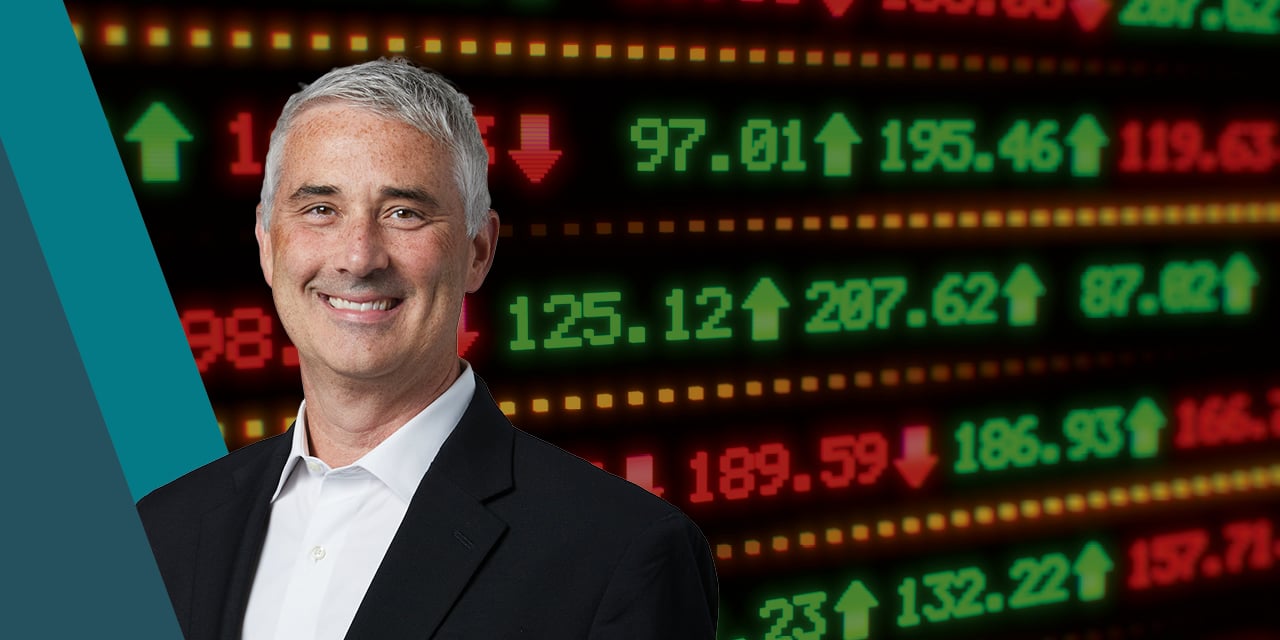
All That Matters: Post-Election Roundup
Post-election thoughts
Mike: The big elephant – the election – is out of the room. It’s been the hot topic this year and we’ve spent a lot of time writing about the election and talking about it with thousands of clients. It’s time to reflect and ask ourselves how we did in talking about this year’s election.
Ross: At the risk of patting ourselves on the back, I think we could give ourselves an A or an A-. In so many of our client interactions, we saw how emotional elections can be for people. Our message was focused on your plan and working with your Baird Financial Advisor to look after your money and guide you towards your long-term goals. We know that throughout history the market has gone up regardless of who’s in the White House or the makeup of Congress. For our clients who were scared leading up to the election, we presented them with the weight of the evidence and what history has shown us from past elections. These emotionally fraught situations are often where the big mistakes happen, and so I’m hopeful that our message resonated with clients and kept them from over-reacting to any outcome.
Mike: Throughout the year, I’ve called 2024 the “Year of the Big Mistake.” The big mistake being a significant change to your money based on the election results. Well, we’ve had the election, and the stock market followed with a really good day on Wednesday. I’m personally going to give us an A grade, because our message was very focused on not making unforced errors. We asked our clients to focus on the long run. Despite hiccups along the way, stocks have always historically moved higher because of the growth of the economy and the companies that make it up–so we asked clients to view elections as just noise along the way.
I saw a recent stat that, for the first time in history, every incumbent party in a developed nation lost vote share in their country’s election. I think that’s a result of a lot of what we’ve been through: COVID-19, inflation, and supply chain disruptions. The world’s a crazy place and that has resulted in a lot of volatility that scares people.
Ross: This type of upheaval and chaos can make it difficult to invest. The constant amount of change can make people anxious enough to keep their money on the sidelines, waiting until they can avoid any volatility and invest with certainty. The spoiler is that that moment never comes, and oftentimes the volatile periods are when the stock market gains happen. We saw that happen just this week with really impressive gains in the stock market, following a turnover in the administration. There’s a lot of reasons for that result but remaining invested was ultimately the right call.
What makes the stock market go up?
Mike: A lot of people saw the stock market reaction on Wednesday, an incredible 2.5% increase, and assumed it meant that the market had been rooting for a certain candidate. And I’m going to myth bust once again: the stock market doesn’t root for certain candidates or certain parties. It just doesn’t. When President Biden won in 2020, the stock market was up 2.2% the next day. In my view, the stock market was up significantly in both instances because it knew who won and it didn’t have to wait out a bunch of protracted lawsuits and contested results. The fact that we had a clear winner was one of the main reasons that the stock market responded so positively.
But you might be asking yourself why the market would go up that much? If you really think about it, it’s not the person in power. It’s the companies that make up the U.S. economy. And who works at those companies? Well, I work at a company, and Ross does, and your neighbors do and maybe you do. And we all went to work on Wednesday. Ross and I went to work because you hired us to take care of your financial plans, and we do that regardless of who wins elections. It’s the same at Starbucks, Procter & Gamble, Costco, and Walmart. What makes the stock market go up isn’t the president, it’s the people going to work, creating products and solving problems—and shareholders benefit from that.
Ross: This is exactly why we invest in U.S. companies. We invest in stocks because as the economy continues to grow, company profits grow, and their stocks continue to rise. It’s really that simple over long periods of time. And while there are different presidential policies that may affect companies, you are also investing in the people at these companies who adapt to changing policies. Companies are living, breathing entities that are incentivized to grow their profits over time, and so they are constantly responding to their environment whether it’s tariffs, new supply chains, or a new corporate tax. It’s for all these reasons that the U.S. stock market is one of the greatest wealth creators of all time, because you get to own a piece of one of the fastest-growing economies and some of the biggest, most innovative companies in the world.
Looking towards the future
Ross: As we look ahead to 2025, I think the big focus for either candidate was going to be expiring provisions of the Tax Cuts and Jobs Act. There will be ongoing analysis on whether these provisions will be extended, and what that will look like. We have a policy team at Strategas, and tax planners and wealth planners in Baird’s Wealth Solutions Group that are equipped to help our clients navigate through these policy implications. While that’s going to be a big topic, that’s more of an individual consideration and has less importance for the market.
Outside of that, the things that mattered this year are going to continue to matter next year. Questions like, are AI investments going to pay off? Will earnings continue to grow? What is the Fed going to do? These are the things that drove the stock market to record highs in 2024, and will continue to be a focus in 2025.
Mike: I’m going to make a prediction that might sound crazy coming from a long-term optimist like me: in the next four years, I think the U.S. stock market will experience a bear market. Why? Because every single president dating back to Herbert Hoover has had a bear market, and I think that’ll continue to stand true. During his term, Donald Trump will be sitting in the White House and something crazy will happen in the world that he’ll have to respond to, and the market will not have seen it coming and will react. So I think we’ll have a bear market, just like all previous presidents in recent history have had a bear market.
We always try to convey that some worries about the future are more important than others. When it comes to the national debt, it should be low on your list. But other news items like interest rates or the corporate tax rate may rise to a top priority.
Ross: Just because profits and the stock market have gone up over time does not mean there will not be extreme bouts of volatility. We see that stock prices are often more volatile than the companies we’re invested in, because it’s people who are trading stocks and there’s emotion at play. History shows us that stocks go up over the long term, but only if we can ride out a series of volatile short terms. Case in point: President Trump’s first term had two bear markets, and yet stocks were closing at all-time highs when he left. That’s the state of play.
Mike: As long-term bulls, we know that the stock market and the economy grows over the long term, but we acknowledge that there are bear markets along the way. Past performance is no guarantee of future results. I wish I knew when the next bear market would be, but all we know is it will be a surprise. Our best advice is to stay focused on your plan – not others – and stay close with your Baird Financial Advisor who will help you weather any storm that comes our way.
The information reflected on this page are Baird expert opinions today and are subject to change. The information provided here has not taken into consideration the investment goals or needs of any specific investor and investors should not make any investment decisions based solely on this information. Past performance is not a guarantee of future results. All investments have some level of risk, and investors have different time horizons, goals and risk tolerances, so speak to your Baird Financial Advisor before taking action.

